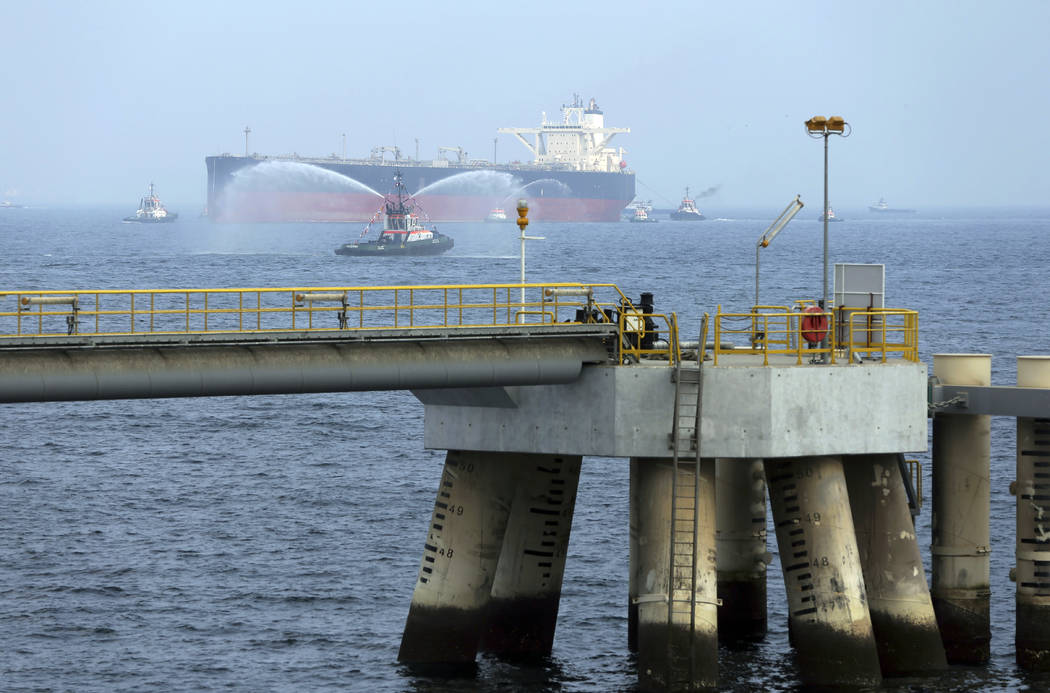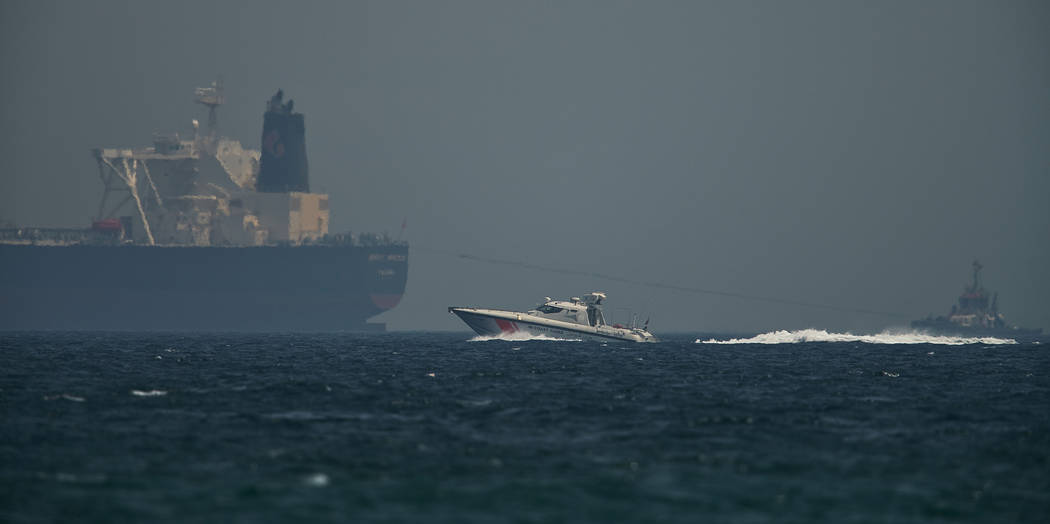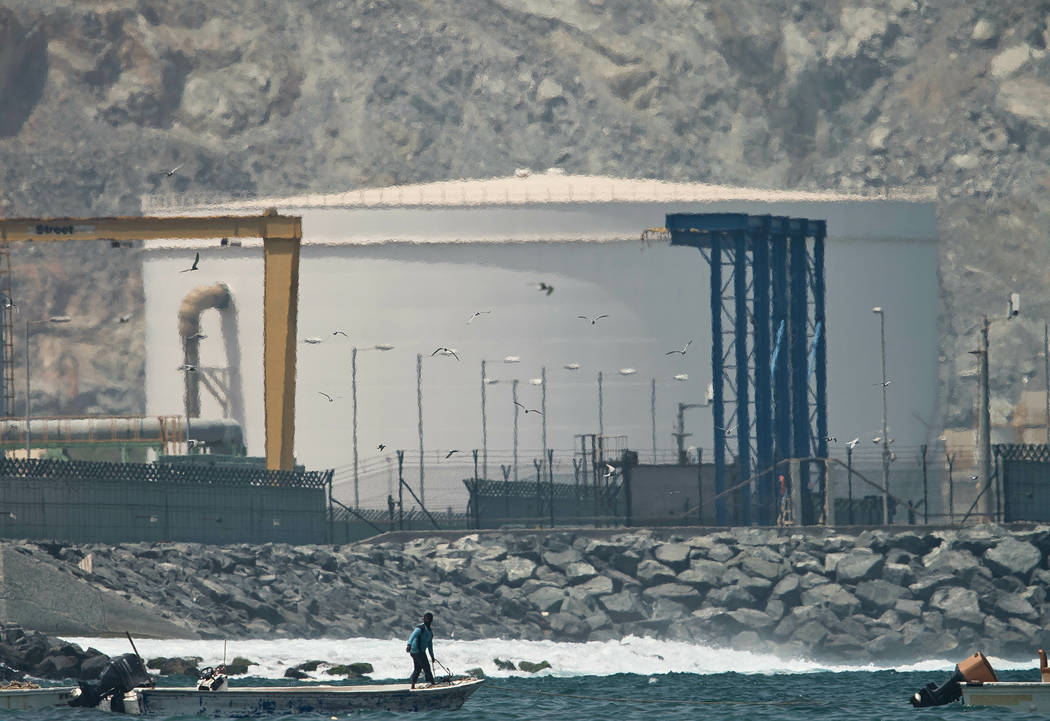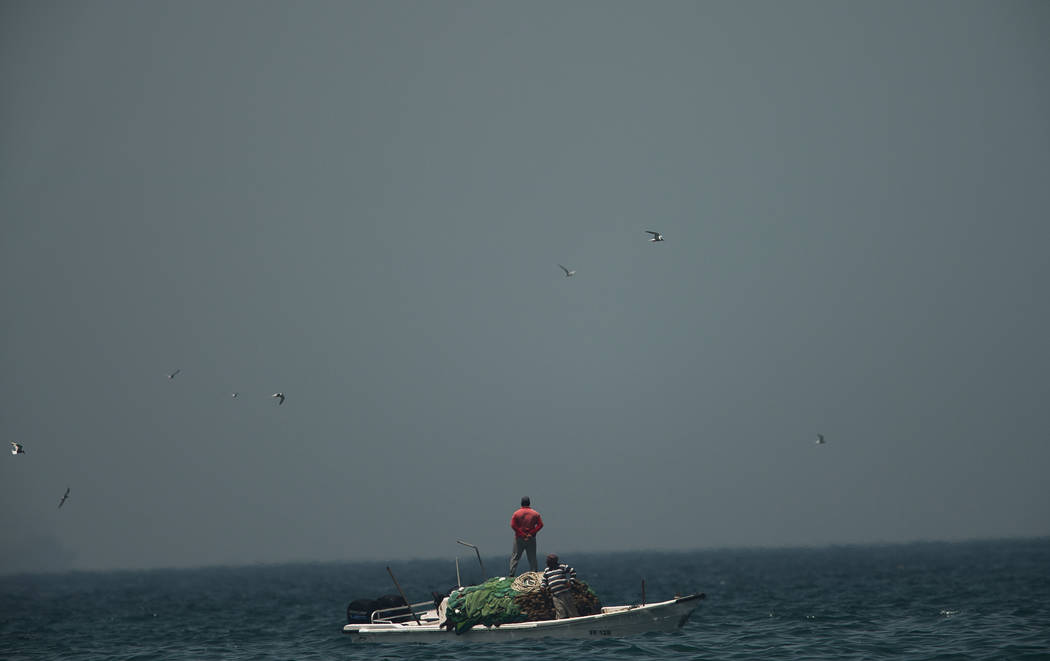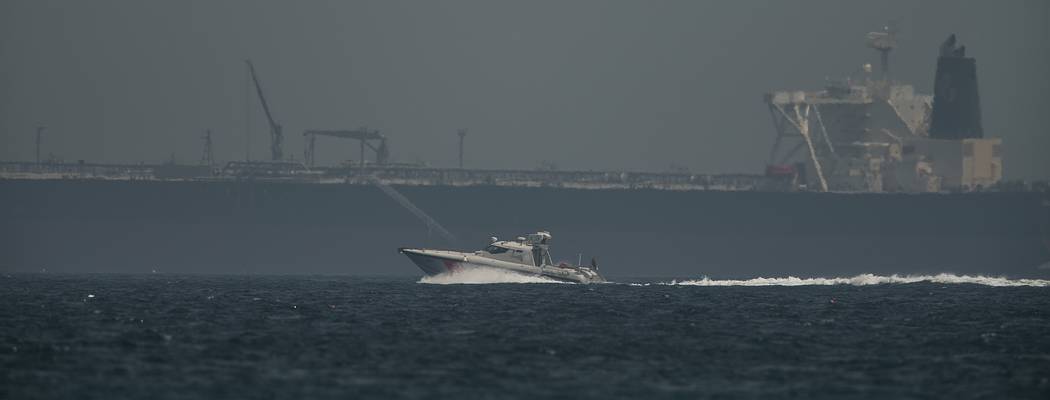Three oil tankers ‘sabotaged’ on major oil route
FUJAIRAH, United Arab Emirates — Two Saudi oil tankers and a Norwegian-flagged vessel were damaged in what Gulf officials described Monday as a “sabotage” attack off the coast of the United Arab Emirates. While details of the incident remain unclear, it raised risks for shippers in a region vital to global energy supplies at a time of increasing tensions between the U.S. and Iran over its unraveling nuclear deal with world powers.
The U.S. issued a new warning to sailors as the UAE’s regional allies condemned Sunday’s alleged attack that the UAE says targeted four ships off the coast of its port city of Fujairah.
It came just hours after Iranian and Lebanese media outlets aired false reports of explosions at the port.
While Gulf officials declined to say who they suspect may be responsible, the U.S. has warned ships that “Iran or its proxies” could be targeting maritime traffic in the region. America is deploying an aircraft carrier and B-52 bombers to the Persian Gulf to counter alleged, still-unspecified threats from Tehran.
Scale of attack unclear
The scale of the alleged sabotage also remains unclear. A statement from Saudi Energy Minister Khalid al-Falih said the kingdom’s two oil tankers, including one due to later carry crude to the U.S., sustained “significant damage.” However, a report from Sky News Arabia, a satellite channel owned by an Abu Dhabi ruling family member, showed the allegedly targeted Saudi tanker Al Marzoqah afloat without any apparent damage.
The MT Andrea Victory, another of the allegedly targeted ships, sustained a hole in its hull just above its waterline from “an unknown object,” its owner Thome Ship Management said in a statement. Images Monday of the Andrea Victory, which the company said was “not in any danger of sinking,” showed damage similar to what the firm described.
Emirati officials identified the third ship as the Saudi-flagged oil tanker Amjad. Ship-tracking data showed the vessel still anchored off Fujairah, apparently not in immediate distress. The fourth ship was the A. Michel, a bunkering tanker flagged in Sharjah, one of the UAE’s seven emirates.
A U.S. official told The Associated Press that American naval investigators were assisting the Emiratis with their probe of the incident. The official was not authorized to discuss details of the assistance publicly and spoke on condition of anonymity.
No comment from U.S. Navy
The U.S. Navy’s 5th Fleet, which patrols the Persian Gulf and wider region from its base in Bahrain, declined to comment on the incident. The Navy runs a small supply operation out of the nearby Emirati naval base in Fujairah.
Authorities in Fujairah, also a UAE emirate, also declined to speak to the AP. Emirati officials stopped AP journalists from traveling by boat to see the ships.
However, the incident raises questions about maritime security in the UAE, home to Dubai’s Jebel Ali port, the largest man-made deep-water harbor in the world that is also the U.S. Navy’s busiest port of call outside of America. From the coast, AP journalists saw an Emirati coast guard vessel patrolling near the area of one of the Saudi ships in Fujairah, some 130 miles (210 kilometers) northeast of Dubai on the Gulf of Oman.
Fujairah also is about 140 kilometers (85 miles) south of the Strait of Hormuz, the narrow mouth of the Persian Gulf through which a third of all oil at sea is traded. The alleged sabotage caused jitters in global oil markets, as benchmark Brent crude rose in trading to over $71.50 a barrel Monday, a change of 1.3%.
Al-Falih, the Saudi energy minister, said the attacks on the two Saudi tankers happened at 6 a.m. Sunday. He said “the attack didn’t lead to any casualties or oil spill,” though he acknowledge it affected “the security of oil supplies to consumers all over the world.”
It is “the joint responsibility of the international community to protect the safety of maritime navigation and the security of oil tankers, to mitigate against the adverse consequences of such incidents on energy markets, and the danger they pose to the global economy,” he said, according to the statement carried by the state-run Saudi Press Agency.
Clarification sought
Shortly after the Saudi announcement, Iran’s Foreign Ministry called for further clarification about what exactly happened with the vessels. The ministry’ spokesman, Abbas Mousavi, was quoted by the official IRNA news agency as saying there should be more information about the incident.
Mousavi also warned against any “conspiracy orchestrated by ill-wishers” and “adventurism by foreigners” to undermine the maritime region’s stability and security. Both the UAE and Saudi Arabia are staunch opponents of Iran’s government.
Tensions have risen since President Donald Trump withdrew America from the 2015 nuclear deal between Iran and world powers, and restored U.S. sanctions that have pushed Iran’s economy into crisis. Last week, Iran warned it would begin enriching uranium at higher levels in 60 days if world powers failed to negotiate new terms for the deal.
European Union officials met Monday in Brussels to thrash out ways to keep the Iran nuclear deal afloat. U.S. Secretary of State Mike Pompeo had traveled there for talks.
“We’re not going to miscalculate. Our aim is not war,” Pompeo told CNBC in an interview. “Our aim is a change in the behavior of the Iranian leadership.”
Underling the regional risk, the general-secretary of the six-nation Gulf Cooperation Council described the incident as a “serious escalation.”
“Such irresponsible acts will increase tension and conflicts in the region and expose its peoples to great danger,” Abdullatif bin Rashid al-Zayani said. Bahrain, Egypt and Yemen’s internationally recognized government similarly condemned the alleged sabotage, as did the Arab League.
The U.S. Maritime Administration, a division of the U.S. Transportation Department, warned Thursday that “Iran and/or its regional proxies” could target commercial sea traffic.
The agency issued a new warning Sunday to sailors about the alleged sabotage and urged shippers to exercise caution in the area for the next week.
It remains unclear if the previous warning from the U.S. Maritime Administration is the same perceived threat that prompted the White House on May 4 to order the USS Abraham Lincoln aircraft carrier strike group and the B-52 bombers to the region. In a statement then, national security adviser John Bolton had warned Iran that “that any attack on United States interests or on those of our allies will be met with unrelenting force.”
___
Associated Press writers Aya Batrawy in Dubai, Bassem Mroue in Beirut, Amir Vahdat in Tehran, Iran, Malak Harb in Fujairah, United Arab Emirates, and Lolita C. Baldor in Washington contributed.



